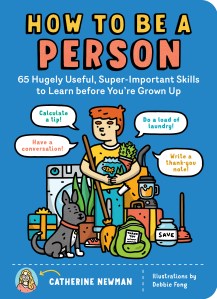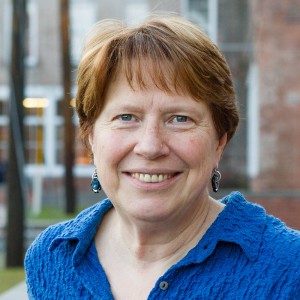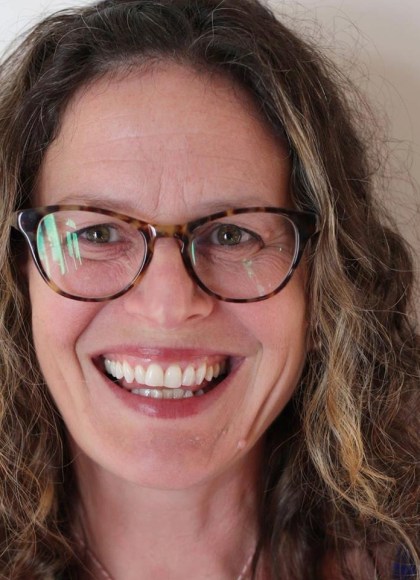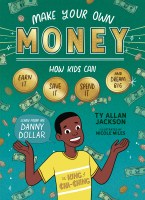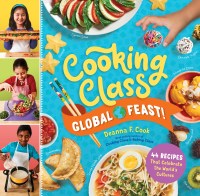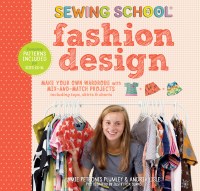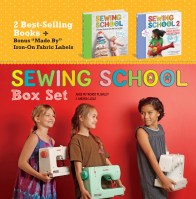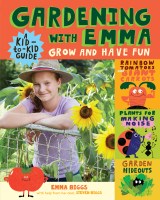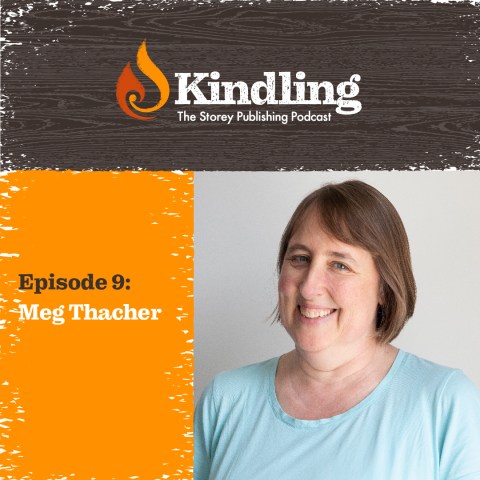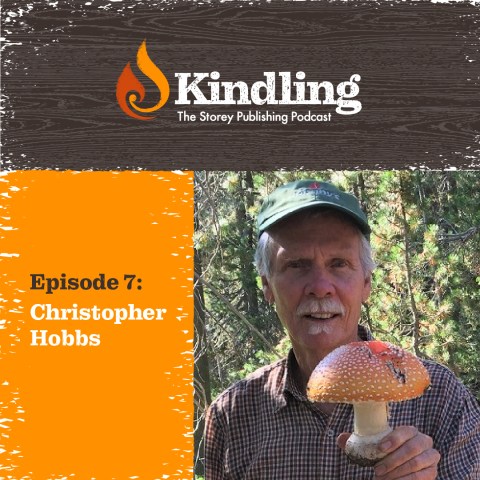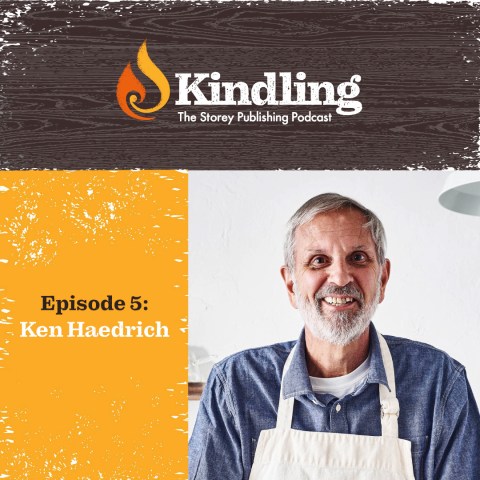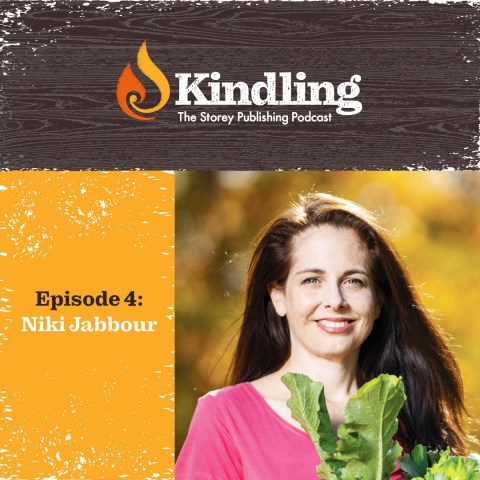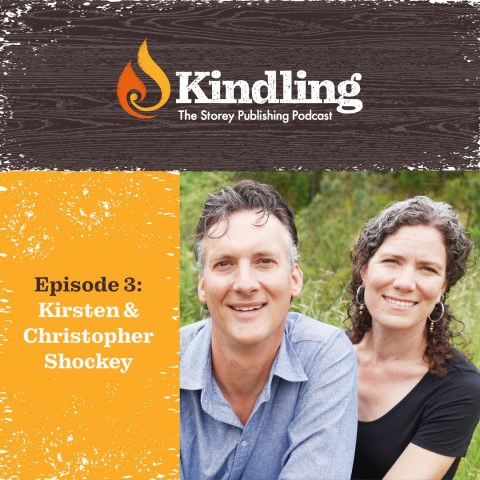Kindling Podcast Episode 8: Catherine Newman
Tune in as Storey publicity & marketing campaign director Alee Moncy speaks with Catherine Newman about her book, How to be a Person, 65 Hugely Useful, Super-Important Skills to Learn Before You’re Grown Up.
In this episode, Newman explains how a trip to the library—where she came up empty-handed—inspired her to write How to be a Person, 65 Hugely Useful, Super-Important Skills to Learn Before You’re Grown Up for her daughter. Plus she offers insights on how the book inspires kids of all ages, from toddlers to teenagers, to roll up their sleeves and get to work on becoming a better person.
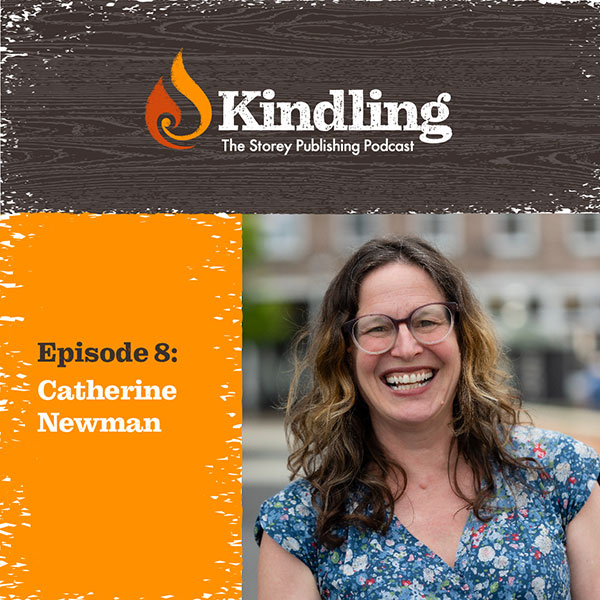
This episode of Kindling: The Storey Publishing Podcast can also be found on podcast platforms including Spotify and iTunes. If you enjoyed this episode please be sure to leave us a rating and review.
Full Podcast Transcript
Deborah Balmuth:
This is Kindling, the Storey Publishing podcast where we explore the spark that ignites a deep-rooted passion for sustainable living. I’m Deborah Balmuth, Storey’s publisher.
From growing organic food and making herbal remedies to fermenting, weaving and raising chickens, the authors we’ll meet will empower you with the skills and savvy they’ve gleaned from years of hands-on experience. In each episode of Kindling, you’ll learn what fuels these authors’ excitement and what they love most about creating books that share their expertise and enthusiasm with the world.
If you’re a grownup looking to improve your family’s work-life balance, Catherine Newman is here to help. Catherine is the author of How to be a Person, 65 Hugely Useful, Super-Important Skills to Learn Before You’re Grown Up. This handy-dandy, illustrated guide teaches young people everything from how to make the bed to how to turn a 33 cent package of ramen into dinner. It also teaches skills like how to stick up for somebody and how to apologize. Storey’s, publicity and marketing campaign director, Alee Moncy, recently spoke with Catherine Newman, who explained the inspiration behind how to be a person.
Catherine Newman:
This is a story I like to tell because it’s about my daughter, Birdie, and about how when she was a youngish teenager, I asked her to do something, like sweep the floor. And she said, oh, I’m totally happy to do that. I don’t know how to do that, but don’t explain it to me. I should clarify that this is a person who has been like that since she was two. So you can’t help her with her tying her shoes or getting her carseat strap buckled. She always had to do everything herself.
So she has turned into an almost 18-year-old now, who’s the same. She doesn’t want you to explain stuff to her. She just wants to know it. And she’s happy to learn it, which means getting a book.
So I went to the library and I said, hey, can you guys give me the book you have that’s a huge encyclopedia of how to do everything for kids, like a photo illustrated encyclopedia of chores? And they did not have a book like that and made fun of me for asking for it because it sounded like an incredibly dull book. And then I pitched that book to you guys over at Storey. And that is how the book got born.
Alee Moncy:
I love that story. Thank you. And I think a lot of families can relate to that right now, wanting to encourage their kids. Your story with Birdie, encourage their kids to do things, but without nagging them, especially since there’s a lot, right now, of things to nag about with remote school going on.
Catherine Newman:
Yeah. It’s so true. I’ve thought about that a lot. Maybe that’s what Birdie means is don’t nag me. I almost feel like maybe that’s the translation of it. And why you want a book is that a book is never going to nag you. And I always like to say about books that they sort of keep all your secrets, that you can look at the how to vacuum chapter a hundred times, and the book’s not going to be like, I already told you how to vacuum. It’s just patiently there. You can just keep looking. It’s not going anywhere. It’s not judging you for not knowing how to do something.
Some people leave the book out for their kids, which I think is kind of brilliant. Instead of here’s a book of things I want you to learn. You just leave it somewhere. You put it on the coffee table. That’s exactly the kind of kids I have. Anything you put on the coffee table, but you didn’t mention, somebody would pick it right up, right away. So I like the idea of it being a not nagging book that’s left out in a not nagging way.
Alee Moncy:
I love that. That’s the way that parents can help their kids want to learn these skills. Any other advice for how to encourage the kids to want to learn how to do these things?
Catherine Newman:
I am really good at something, which is I’m being really, really, really grateful when I have the opportunity, rather than being really, really irritated when something doesn’t get done. So the positive feedback loop is so insanely productive. And then kids feel really authentically helpful instead of feeling like they’re sort of failing you, even as they’re doing stuff they don’t want to do.
Alee Moncy:
Yeah. I know. I have a hard time. I think I micromanage a little. When do you stop and correct them when they’re wiping all of the crumbs off of the counter? Great. That’s so helpful. But onto the floor.
Catherine Newman:
The trick is maybe to just keep reminding yourself, if they do that it’s because they don’t know. And so not micromanaging, but giving information where you say, oh my gosh, look, you cup your hand right here, and then the crumbs go right in there. And so just to remember that they do it that way, not to drive you crazy, and not to be a jerk, but because they just don’t know where the crumbs go.
Alee Moncy:
Perfect. That’s a good segue here. I love the way that you write some of the instructions for things that seem so obvious to adults, but in such a funny, yet not judgy way, like how to answer the phone. And you say, when someone calls you, you need to be the one to speak first. Brilliant. That wouldn’t occur to me as something that we’d have to teach our kids. So are there other things like that that you remember being surprised by something that you had to actually teach your own kids?
Catherine Newman:
Both of my kids confessed to the first time they saw or were instructed to sign their name, they had no idea what that meant. I’m like, here’s a thing you would never think of, right? Sign your name. And both of them were like… And they like thought I meant write it in weird block caps, or they just had no idea what that meant.
And so I had a thing about practicing your signature, and both kids noted you need to tell kids what this is and what it means. I thought, okay.
And then there was something so funny. Again, this is now my 21-year-old son, but there was instructions for how to roast a chicken where you poke the thigh and make sure the juice runs clear. And he said, show me a chicken, and my first 10 guesses, I’m not going to guess which one is the thigh.
And so I feel like parenting is really one false assumption after another. It’s like when they’re little, and you don’t realize they can reach the knife block till your three-year-old has a knife in their hands. And you’re like, oh, now I know you can reach the knives. That’s really good information. And you just are doing it all on the fly. And so I feel like all the time you make false assumptions about what they know. And I think, as much as we can bring grace to that, that’s the goal.
Alee Moncy:
So let’s talk about some of the skills in the book. What do you think a great first step would be for a kid just starting to do some things themselves?
Catherine Newman:
There are really satisfying things that a child might like to do, sweeping, weirdly in my house, people don’t mind doing it because it’s so tangible. You sweep our kitchen, and this maybe is just our kitchen, and there’s then a cartoon pile of dirt and dust. It’s like an actual pile, and you made it by sweeping, and then you sweep it into a dustpan, and then it’s gone. And I feel like that’s a very tangible thing to do.
Other things I think are a little more elusive, or can be. The other thing I love talking about is relationships and helping kids. Those are other skills, I think, we think that they have, and they don’t. How to have a conversation with somebody. That’s a skill, and you learn it the way you learn skills. You can explain to a kid or show them the book that you express curiosity in what someone’s thinking. Some of those are just skills… They see it, and a lot of kids pick up on it, and some kids really don’t, and you just teach it to them.
Alee Moncy:
And how young can we start doing these things with our kids?
Catherine Newman:
I used to give y kids what I called the fun, unimportant jobs when they were really little, but with a lot of dignity and gravity. So I would be like, I have a really important job for you. It was on Thanksgiving. They’re underfoot and driving you crazy. And you have a hundred thousand things to make. And I’d be like, can you please wash these cranberries for me? And I would fill the sink with cold water and put the two bags of cranberries in. And that child would be in that sink for four hours, floating them all around and swishing them and straining them out and putting them in the colander and putting them back in the water. And it was helpful-ish.
And then when they got a little older, they were in charge of making the name tags for the dinner table or doing the centerpiece, things that were kind of low stakes, but high reward, the big-ticket items where someone would be like, wow, that’s a beautiful pinecone with paint dripped on it. And the kid would be like, I made that.
And then I think it just evolved. I always think of it as an evolution through the really fun, low stakes chores into the satisfying tours, feeding pets. That’s a rewarding chore. The pet wants to be fed. That’s like you’re rewarded for doing it.
And then you get into the chores that I always say are the no fun chores that nobody wants to do, but we all have to do them. And that’s just the regular stuff, the vacuuming, which nobody in my house likes doing, cleaning the bathroom, nobody likes doing. The stuff that’s really just, we do it because we live in community, and this is what it means to live in community.
Alee Moncy:
As helpful as it is to have kids helping around the house, can you talk a little bit about the bigger benefit of them learning that they can do these things themselves?
Catherine Newman:
I know you’ve heard me cite this research before, but this neuroscientist I love, Kelly Lambert, has done research on the reward system, which is dopamine and those neurochemicals that make you feel really good, that make you feel like you did something good, and you feel good about yourself. And she has just lots of evidence that doing meaningful things with your hands, so this is never something on your phone or your computer, note that. Doing real things, gardening, making food, cleaning, chopping wood, building a fire, doing anything that your brain interprets as a meaningful, important, life-giving activity, those things all release dopamine. And dopamine is a natural antidepressant.
And so one of the things I think about this time during the pandemic is so much of kids’ lives now are virtual. Kids who aren’t going to school, they’re on their computers. They’re on Tik Tok when they’re not at virtual school. I feel like it’s such an important antidote to have these real life, hands-on, dopamine-releasing things they’re doing, even if they think they don’t want to do them. So I feel like it’s really, really important for their mental health to be authentically helpful right now, and to do something and have someone say to them, oh my god, thank you so much for doing that.
Alee Moncy:
And you talk about independence, but also interdependence. Can you tell us a little bit about what that means for kids to learn to be interdependent?
Catherine Newman:
We have a really tight family and community of friends and neighborhood. And I feel like, for me, a big part of the kids growing up is seeing themselves as part of that and as part of the bigger world, even beyond that. So what that means to me is that everything you do has an impact on other people in your household, in your neighborhood, in your town. And that our goal is to kind of extend out in these concentric circles of being connected to each other. So I always say, I don’t care if you live on a deserted island, please feel free to not clean your bathroom. I really don’t care. I think most of this stuff is about the fact that we live in smaller and larger communities with other people. That’s why it matters. We have that page in the book about contacting your political representatives. For me, that’s part of interdependence is we see that we are a part of something bigger than ourselves, and we try to be the best part of that that we can be.
Alee Moncy:
So you and the illustrator, Debbie Fong, were very mindful about including illustrations of children of color, of both girls and boys, and of differing abilities. Can you talk a little bit about the importance of inclusion while you were writing the book?
Catherine Newman:
We wanted the book to be as fully inclusive as possible just for every possible reason because that’s the world we want to live in. We don’t like stereotypes about who can do what. The gender piece, chores brings up a lot of gender issues for people, like I did some radio interviews, and a bunch of people asked me if I thought there were boy chores and girl chores. And oh my god, I don’t. That is not the world I want to live in, where there’s boy chores and girl chores. That doesn’t make any sense to me. So Debbie and I were just fully allied in our hopes that it would be an inclusive book with diversity as sort of one of it’s almost like a theme of the book is that.
Alee Moncy:
So if there are any kids out there listening to this podcast with their parents, what would you say to them if they were to take one thing away from this interview?
Catherine Newman:
We want them to buy the book, so maybe that. But that I think kids like to rise to an occasion. I think the idea of an invitation to come forward, you give them a little space and a feeling that they’re going to be successful. I just think that idea that you’re beckoning them into their best selves. For me, that’s the image of what the book is trying to do.
Deborah Balmuth:
Catherine Newman is the author of How to be a Person, 65 Hugely Useful, Super-Important Skills to Learn Before You’re Grown Up. She spoke with Alee Moncy, Storey’s publicity and marketing campaign director.
To learn more about Storey Publishing’s books and authors, visit storey.com. That’s S-T-O-R-E-Y.com.
And if you have questions or comments about what you hear on Kindling, let us know. You can email us at feedback@storey.com.
That’s it for this edition of Kindling, coming to you from the Berkshire Hills of Western Massachusetts. I’m Storey’s publisher, Deborah Balmuth. Thanks for listening.
Next time on Kindling.
Meg Thacher:
So when you go to the moon, you’re not just going to the moon in a straight path. You get into an orbit that will take you to the moon. When you’re going to Mars, you get into an orbit that will take you to Mars. So you can turn on your engines for as long as it takes to get into that orbit, and then you turn them off, and gravity does the rest of the work for you.
Deborah Balmuth:
Astronomer Meg Thacher offers young people a captivating tour of the solar system and deep space with her out-of-this-world book, Sky Gazing, a Guide to the Moon, Sun, Planets Stars, Eclipses, and Constellations.
KINDLING IS PRODUCED BY SHEIR AND SHIM, LLC.
Learn More
Jam-packed with tips, tricks, and skills—all illustrated in an irresistible graphic novel–style—this book shows kids just how easy it is to free themselves from parental nagging and become more dependable—and they’ll like themselves better, too! They’ll learn how to deal with dirty rooms, care for pets and cactuses, stick up for somebody, and fold a T-shirt. They’ll even get a crash course on using the kitchen (including how to turn a 33-cent package of ramen into dinner) and a boot camp for lending a hand outside the house (mowing, shoveling, and fixing something loose has never been easier). This handbook to becoming beyond helpful promises that every kid can be a valued and valuable member of the grown-up world.
